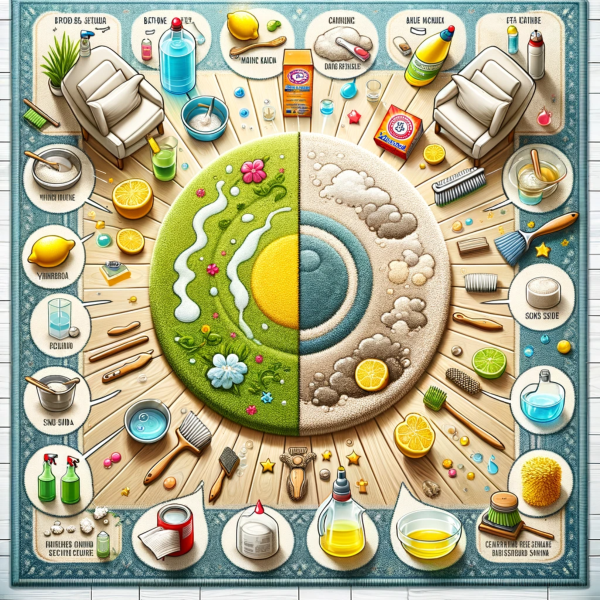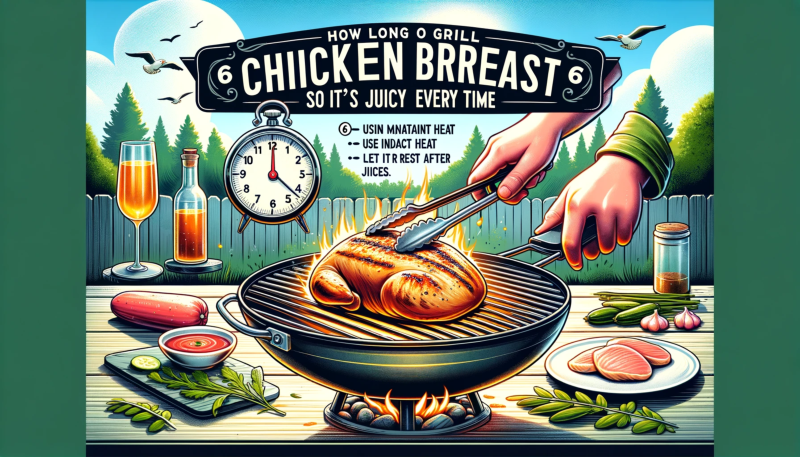When it comes to baking or cooking, brown sugar is a popular ingredient that adds a rich, caramel flavor to your dishes. However, if you find yourself out of brown sugar or looking for a healthier alternative, there are several options available that can still provide the sweetness and depth of flavor you desire.
One of the best substitutes for brown sugar is coconut sugar. Made from the sap of coconut palm trees, coconut sugar has a similar taste profile to brown sugar with its caramel-like flavor. It also has a lower glycemic index, making it a healthier option for those watching their blood sugar levels. Use coconut sugar in a 1:1 ratio to replace brown sugar in your recipes.
Another great alternative is maple syrup. With its distinct flavor and natural sweetness, maple syrup can be a delicious substitute for brown sugar. Choose a pure maple syrup for the best results. Keep in mind that maple syrup is liquid, so you may need to adjust the liquid content of your recipe accordingly. Use approximately ¾ cup of maple syrup for every cup of brown sugar called for in your recipe.
See Also: The Ultimate Christmas Gift Guide - Finding the Perfect Presents and Creating the Ultimate Wishlist
If you're looking for a zero-calorie option, stevia is a popular choice. Derived from the stevia plant, stevia is a natural sweetener that can be used as a substitute for brown sugar. It is sweeter than sugar, so you'll only need a small amount. Keep in mind that stevia can have a slightly bitter aftertaste, so it may not be the best choice for every recipe. Follow the recommended conversion instructions on the stevia packaging for the best results.
See Also: Versatile Hairstyles for Everyone - Expert Tips on How to Perfectly Style Your Middle Part Hair
Whether you're trying to cut back on sugar or simply need a replacement for brown sugar in your pantry, these alternatives can help you achieve the same sweet and flavorful results in your recipes. Experiment with different options to find the perfect substitute that suits your taste preferences and dietary needs.
See Also: Exploring Alternative Options for Soy Sauce - Discovering the Ideal Substitute
Common Substitutes for Brown Sugar in Recipes
When you find yourself in a pinch without brown sugar for your recipe, there are several common substitutes you can use. While they may not provide the exact same flavor and texture as brown sugar, these alternatives can still add a touch of sweetness to your dishes.
One popular substitute for brown sugar is granulated sugar mixed with molasses. To make your own brown sugar substitute, combine 1 cup of granulated sugar with 1 tablespoon of molasses. Mix them together until the molasses is fully incorporated into the sugar. This mixture will result in a similar flavor and texture to brown sugar.
Another option is using honey as a substitute. Honey is naturally sweet and can bring a unique flavor profile to your recipes. Keep in mind that honey is sweeter than brown sugar, so you may want to reduce the amount used in your recipe. Start by replacing 1 cup of brown sugar with 1/2 to 2/3 cup of honey and adjust to taste.
Maple syrup can also be used as a substitute for brown sugar. It has a distinct flavor that can complement many dishes. Use the same ratio as honey, replacing 1 cup of brown sugar with 1/2 to 2/3 cup of maple syrup. Again, adjust the amount based on your desired level of sweetness.
blonde highlights
Coconut sugar is another alternative that can add a unique flavor to your recipes. It has a caramel-like taste and can be used as a 1:1 replacement for brown sugar. Keep in mind that coconut sugar may darken your baked goods, so adjust your cooking times accordingly.
If you're looking for a sugar-free option, you can use a sugar substitute like stevia or erythritol. These sweeteners are low in calories and can be used in a 1:1 ratio to replace brown sugar. Keep in mind that they may not provide the same texture or caramelization as brown sugar.
With these common substitutes for brown sugar, you can still enjoy your favorite recipes even if you don't have brown sugar on hand. Experiment with different substitutes to find the one that best suits your taste preferences and dietary needs.
What can I substitute for brown sugar in a recipe?
When you find yourself out of brown sugar while baking, there are several alternatives you can use that will still give your recipe a deliciously sweet flavor. Here are some substitutes you can try:
| Substitute | Ratio | Description |
|---|---|---|
| White Sugar | 1 cup white sugar + 1 tablespoon molasses | Mixing white sugar with molasses creates a similar flavor and color to brown sugar. |
| Honey | 1 cup honey | Honey adds a natural sweetness and moisture to your recipe. Use caution, as it can alter the flavor slightly. |
| Maple Syrup | 1 cup maple syrup | Maple syrup provides a rich, caramel-like flavor and can be used as a 1:1 replacement for brown sugar. |
| Coconut Sugar | 1 cup coconut sugar | Coconut sugar has a similar taste and texture to brown sugar, making it a great substitute in most recipes. |
| Agave Nectar | 3/4 cup agave nectar | Agave nectar is a liquid sweetener that adds a mild sweetness to your baked goods. |
Remember, when using these substitutes, the taste and texture of your recipe may be slightly different than when using brown sugar. It's always a good idea to experiment and adjust the amount of substitute according to your personal preference. Happy baking!
What is a good substitute for brown sugar in sweet and sour?
When making sweet and sour dishes, brown sugar is often used to add a rich, caramel-like flavor. However, if you find yourself without brown sugar, there are several alternatives that can still give your dish a similar taste.
One option is to use granulated white sugar mixed with molasses. To make your own brown sugar substitute, mix one cup of granulated white sugar with one tablespoon of molasses. Adjust the amount of molasses to achieve the desired level of sweetness and color. The molasses adds a depth of flavor similar to brown sugar, making it a suitable substitute in sweet and sour dishes.
Another alternative is coconut sugar, which is derived from the sap of coconut palm flowers. It has a similar sweetness and flavor profile to brown sugar, with a hint of caramel. Coconut sugar can be used as a 1:1 replacement for brown sugar in sweet and sour recipes, giving your dish a unique tropical twist.
Honey is also a great substitute for brown sugar in sweet and sour dishes. It adds a natural sweetness and a subtle floral flavor. Use an equal amount of honey as you would brown sugar, but keep in mind that honey has a stronger flavor, so you may need to adjust the other ingredients accordingly.
Maple syrup can be another tasty substitute for brown sugar in sweet and sour recipes. It provides a rich, earthy sweetness that complements the tangy flavors of the dish. Substitute maple syrup for brown sugar in equal parts, and adjust the other ingredients to maintain the desired consistency of the sauce.
Lastly, if you prefer a sugar-free option, you can use a sugar substitute like stevia or erythritol. These sweeteners are low in calories and do not affect blood sugar levels. Use them in the same quantity as brown sugar, and keep in mind that they may not provide the same depth of flavor as brown sugar.
Remember, when substituting brown sugar in sweet and sour dishes, it's important to consider the flavor and consistency you want to achieve. Experiment with different substitutes to find the perfect balance for your taste buds.
What can I substitute for brown sugar for diabetics?
For individuals with diabetes, finding suitable substitutes for brown sugar can be crucial in maintaining blood sugar levels. Fortunately, there are several alternatives that can be used as a replacement without causing significant spikes in blood sugar.
Stevia: Stevia is a natural sweetener that comes from the leaves of the Stevia rebaudiana plant. It is a zero-calorie sweetener that does not affect blood sugar levels. Stevia can be used as a 1:1 substitute for brown sugar in most recipes, but keep in mind that its taste may differ slightly.
Erythritol: Erythritol is a sugar alcohol that has a minimal impact on blood sugar levels. It is a great substitute for brown sugar in baking, as it provides a similar texture and sweetness. Erythritol can be used as a 1:1 replacement for brown sugar in most recipes.
Monk Fruit Sweetener: Monk fruit sweetener is derived from the monk fruit and contains zero calories and carbohydrates. It is a suitable substitute for brown sugar for diabetics, as it does not affect blood sugar levels. Monk fruit sweetener can be used as a 1:1 replacement for brown sugar in recipes.
Coconut Sugar: While coconut sugar does contain some calories and carbohydrates, it has a lower glycemic index compared to brown sugar. This means that it causes a slower and more gradual rise in blood sugar levels. Coconut sugar can be used as a substitute for brown sugar in a 1:1 ratio.
It is important to note that even though these alternatives have a lower impact on blood sugar levels, moderation is still key for individuals with diabetes. It is always recommended to consult with a healthcare professional or a registered dietitian before making any significant changes to your diet.
How to Make Your Own Brown Sugar
If you find yourself out of brown sugar and in need of a quick substitute, don't worry! You can easily make your own brown sugar at home with just two simple ingredients: white sugar and molasses.
Here's how you can make your own brown sugar:
- Measure out the desired amount of white sugar. For every cup of brown sugar you need, use one cup of white sugar.
- In a separate bowl, add one tablespoon of molasses for every cup of white sugar. For lighter brown sugar, use one tablespoon of molasses. For darker brown sugar, use two tablespoons.
- Mix the white sugar and molasses together until well combined. Use a fork or a whisk to ensure that the molasses is evenly distributed throughout the sugar.
- Continue mixing until the brown sugar has a uniform color and texture. The molasses will give the sugar a rich, caramel-like flavor and a slightly moist consistency.
- Your homemade brown sugar is now ready to use in your favorite recipes!
Keep in mind that homemade brown sugar may have a slightly different taste compared to store-bought brown sugar. However, it can be a great substitute in a pinch and works well in most recipes.
Now that you know how to make your own brown sugar, you can always have a sweet alternative on hand for your baking needs.
Can I make brown sugar from white sugar?
Yes, you can make brown sugar from white sugar! Brown sugar is essentially white sugar with molasses added to it, so you can easily create a substitute at home. All you need is some white sugar and molasses.
To make light brown sugar, simply combine 1 cup of white sugar with 1 tablespoon of molasses. Mix them together until the molasses is evenly distributed throughout the sugar. For dark brown sugar, use 2 tablespoons of molasses instead.
It's important to note that the molasses adds not only color but also a distinct flavor to the sugar. The amount of molasses you add will determine the intensity of the flavor. If you prefer a milder taste, use less molasses; if you want a stronger flavor, add more.
Once you have made your homemade brown sugar, you can use it as a substitute in any recipe that calls for brown sugar. It will provide the same sweetness and moisture as regular brown sugar.
So, don't worry if you run out of brown sugar. With some white sugar and molasses, you can easily create your own brown sugar at home!
How do you make brown sugar?
Making your own brown sugar is a simple process that requires just two ingredients: white sugar and molasses. By combining these two ingredients, you can create a homemade version of brown sugar that is just as delicious and versatile as store-bought brown sugar.
To make brown sugar, start by measuring out the desired amount of white sugar. For every cup of white sugar, you will need to add 1 tablespoon of molasses. The molasses gives the brown sugar its distinctive flavor and rich color.
Next, pour the measured molasses over the white sugar in a mixing bowl. Use a fork or spoon to mix the molasses into the sugar until it is evenly distributed. Continue mixing until the molasses is fully incorporated and there are no clumps of molasses remaining.
If you prefer a darker brown sugar, you can add a little more molasses. For a lighter brown sugar, use less molasses. Adjust the amount of molasses to suit your personal taste preferences.
Once the molasses is fully mixed into the sugar, your homemade brown sugar is ready to use. It can be used in any recipe that calls for brown sugar, such as cookies, cakes, and sauces. Store any leftover brown sugar in an airtight container to keep it fresh.
By making your own brown sugar, you can ensure that it is free from any additives or preservatives. Plus, it allows you to customize the flavor and color to your liking. Give it a try and see how easy and delicious homemade brown sugar can be!
Healthier Alternatives to Brown Sugar
If you're looking for a healthier alternative to brown sugar, there are plenty of options available. These alternatives can help you reduce your sugar intake while still satisfying your sweet tooth. Here are some healthier alternatives to brown sugar:
how to pick a good watermelon
- Coconut sugar: Made from the sap of coconut palm trees, coconut sugar is a natural sweetener that has a lower glycemic index than brown sugar. It also contains minerals like iron, zinc, and potassium.
- Stevia: Derived from the leaves of the stevia plant, stevia is a calorie-free sweetener that can be used as a substitute for brown sugar. It is much sweeter than sugar, so you only need a small amount.
- Maple syrup: Made from the sap of maple trees, maple syrup is a natural sweetener that contains antioxidants and minerals like manganese and zinc. It has a distinct flavor that can add depth to your recipes.
- Honey: Honey is a natural sweetener that has been used for centuries. It is sweeter than sugar, so you can use less of it in your recipes. It also has antibacterial properties and contains antioxidants.
- Agave nectar: Derived from the agave plant, agave nectar is a natural sweetener that has a lower glycemic index than brown sugar. It is sweeter than sugar, so you can use less of it.
These healthier alternatives to brown sugar can be used in a variety of recipes, from baking to sweetening your morning coffee. Experiment with different options to find the one that best suits your taste and dietary needs.
What is the healthiest brown sugar substitute?
When it comes to finding a healthy alternative to brown sugar, there are several options to consider. Here are a few of the healthiest substitutes:
| Substitute | Taste | Nutritional Benefits |
|---|---|---|
| Coconut sugar | Similar to brown sugar with a hint of caramel flavor | Contains small amounts of minerals and fiber |
| Maple syrup | Sweet and rich with a distinct maple flavor | Contains antioxidants and minerals like manganese and zinc |
| Honey | Sweet with a floral flavor | Contains antioxidants and has potential antibacterial properties |
| Stevia | Very sweet with a slightly bitter aftertaste | Zero calories and does not affect blood sugar levels |
| Monk fruit sweetener | Sweet with no aftertaste | Zero calories and does not affect blood sugar levels |
It's important to note that while these alternatives may be considered healthier options, they should still be consumed in moderation as part of a balanced diet. Each substitute has its own unique taste and nutritional benefits, so it's worth experimenting to find the one that suits your preferences and dietary needs the best.
What is healthier than brown sugar?
When it comes to sweeteners, finding a healthier alternative to brown sugar is important for those who are looking to reduce their sugar intake or manage their blood sugar levels. While brown sugar is a common ingredient in many recipes, it is not the healthiest option due to its high calorie and sugar content.
A healthier alternative to brown sugar is coconut sugar. Coconut sugar is derived from the sap of coconut palm trees and contains trace amounts of vitamins and minerals, including potassium, iron, and zinc. It also has a lower glycemic index than brown sugar, which means it has a lesser impact on blood sugar levels.
Another healthier substitute for brown sugar is pure maple syrup. Unlike processed sugars, pure maple syrup is made from the sap of maple trees and contains antioxidants and minerals such as manganese and zinc. It also has a lower glycemic index than brown sugar, making it a better option for those who are watching their blood sugar levels.
Stevia is another natural sweetener that is often considered healthier than brown sugar. It is derived from the leaves of the stevia plant and is calorie-free. Stevia does not raise blood sugar levels and can be a suitable option for those who are following a low-calorie or low-carb diet.
It's important to note that while these alternatives may be considered healthier than brown sugar, moderation is still key. It's always best to consume all sweeteners in moderation and to consult with a healthcare professional or registered dietitian for personalized advice.
Baking and Cooking: Substituting Brown Sugar
When it comes to baking and cooking, brown sugar is a popular ingredient that adds sweetness and moisture to recipes. However, if you find yourself without brown sugar, or if you're looking for a healthier alternative, there are several substitutes you can use to achieve similar results.
1. White Sugar and Molasses: One of the most common substitutes for brown sugar is a combination of white sugar and molasses. For every cup of brown sugar called for in a recipe, you can use 1 cup of white sugar mixed with 1 tablespoon of molasses. This will give you a similar flavor and texture to brown sugar.
2. Coconut Sugar: Another great substitute for brown sugar is coconut sugar. It has a rich caramel-like flavor and can be used in a 1:1 ratio as a replacement for brown sugar in most recipes.
3. Honey: Honey is a natural sweetener that can be used as a substitute for brown sugar. Keep in mind that honey has a stronger flavor than brown sugar, so it may alter the taste of your recipe slightly. Use about 3/4 cup of honey for every cup of brown sugar in your recipe.
4. Maple Syrup: Maple syrup is another natural sweetener that can be used instead of brown sugar. It adds a rich, distinctive flavor to your baked goods. Use about 3/4 cup of maple syrup for every cup of brown sugar in your recipe.
5. Stevia: If you're looking for a sugar-free substitute for brown sugar, stevia is a great option. Stevia is a natural, zero-calorie sweetener that can be used in a 1:1 ratio as a replacement for brown sugar.
When substituting brown sugar in a recipe, keep in mind that the texture and moisture content of your baked goods may be slightly different. It may take some trial and error to find the perfect substitute for your specific recipe, but these alternatives are a great place to start.
Remember to always adjust the amount of substitute you use based on your taste preferences and the specific recipe you are working with. Happy baking and cooking!
How do I substitute brown sugar in baking?
Substituting brown sugar in baking can be done easily with a few simple alternatives. Here are some options to consider:
1. White sugar and molasses: To substitute 1 cup of brown sugar, combine 1 cup of white sugar with 1 tablespoon of molasses. Mix thoroughly until well incorporated. This will give your baked goods a similar taste and texture as using brown sugar.
2. Coconut sugar: Coconut sugar is a natural sweetener that can be used as a substitute for brown sugar. Use it in a 1:1 ratio to replace brown sugar in your recipes. It has a rich flavor and works well in most baked goods.
3. Honey: Honey can also be used as a substitute for brown sugar, but it will add a different flavor profile to your baked goods. Use 1/2 cup of honey for every 1 cup of brown sugar called for in the recipe. Reduce the amount of liquid in the recipe by 1/4 cup to account for the added moisture from the honey.
4. Maple syrup: Maple syrup can be used as a substitute for brown sugar in certain recipes, particularly those with a strong flavor profile. Use 3/4 cup of maple syrup for every 1 cup of brown sugar called for in the recipe. Reduce the amount of liquid in the recipe by 3 tablespoons to account for the added moisture from the syrup.
5. Agave nectar: Agave nectar is a liquid sweetener that can be used as a substitute for brown sugar. Use it in a 1:1 ratio to replace brown sugar in your recipes. Keep in mind that agave nectar is sweeter than brown sugar, so you may need to adjust the amount used to achieve the desired level of sweetness.
Experiment with these alternatives to find the perfect substitute for brown sugar in your baking recipes. Each option will provide a slightly different flavor and texture, so choose the one that best complements your desired outcome.
What is the difference between brown and raw sugar in cooking?
Brown sugar and raw sugar are both popular alternatives to traditional white granulated sugar in cooking and baking. While they may look similar, there are some key differences that can affect the taste and texture of your recipes.
Brown sugar is made by adding molasses back into refined white sugar. This gives it a moist texture and a rich, caramel-like flavor. The amount of molasses added determines whether the sugar is light or dark brown. Light brown sugar has a milder flavor, while dark brown sugar has a stronger, more intense flavor.
Raw sugar , on the other hand, is a less refined version of sugar. It is made by extracting the juice from sugar cane or sugar beets and then evaporating the water to produce crystals. Unlike brown sugar, raw sugar does not have any molasses added back in. This gives it a lighter color and a more subtle flavor compared to brown sugar.
In terms of cooking, both brown and raw sugar can be used in similar ways. They can both be used as a sweetener in beverages, sauces, and baked goods. However, because brown sugar has a higher moisture content, it can add more moisture to recipes and create a softer texture. Raw sugar, on the other hand, can add a slight crunch or graininess to certain recipes.
When substituting brown or raw sugar for white sugar in a recipe, keep in mind that they have different flavor profiles and moisture levels. This can affect the overall taste and texture of your dish. It's always a good idea to experiment and adjust the amounts based on your personal preferences and the specific recipe you are using.
Overall, the difference between brown and raw sugar lies in their production and flavor profiles. Brown sugar has added molasses and a richer flavor, while raw sugar is less refined and has a more subtle taste. Understanding these differences can help you choose the perfect substitute for brown sugar in your cooking and baking endeavors.
Q&A:
What is brown sugar?
Brown sugar is a type of sugar that has a distinctive brown color and a slightly molasses flavor. It is made by combining white sugar with molasses.
Why would someone want to find a substitute for brown sugar?
There can be various reasons why someone would want to find a substitute for brown sugar. It could be due to dietary restrictions, such as a low-sugar or low-carb diet, or it could be because they ran out of brown sugar and need a quick replacement.
What are some common substitutes for brown sugar?
Some common substitutes for brown sugar include honey, maple syrup, coconut sugar, date sugar, and molasses. These alternatives can add sweetness and flavor to recipes just like brown sugar.
Can you substitute white sugar for brown sugar?
Yes, you can substitute white sugar for brown sugar in certain recipes. However, keep in mind that white sugar does not have the same flavor and moisture content as brown sugar, so the end result may be slightly different.
Are there any health benefits to using brown sugar substitutes?
Some brown sugar substitutes, such as coconut sugar and date sugar, are considered to be healthier alternatives due to their lower glycemic index and higher mineral content. However, it's important to remember that all sugars should be consumed in moderation.
What are some alternatives to brown sugar?
Some alternatives to brown sugar include honey, maple syrup, coconut sugar, and molasses.
Can I use honey as a substitute for brown sugar in baking?
Yes, honey can be used as a substitute for brown sugar in baking. However, since honey is sweeter than brown sugar, you will need to use less honey than the amount of brown sugar called for in the recipe.





